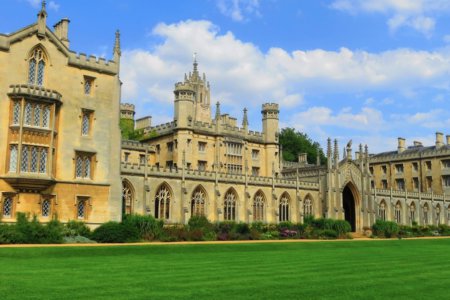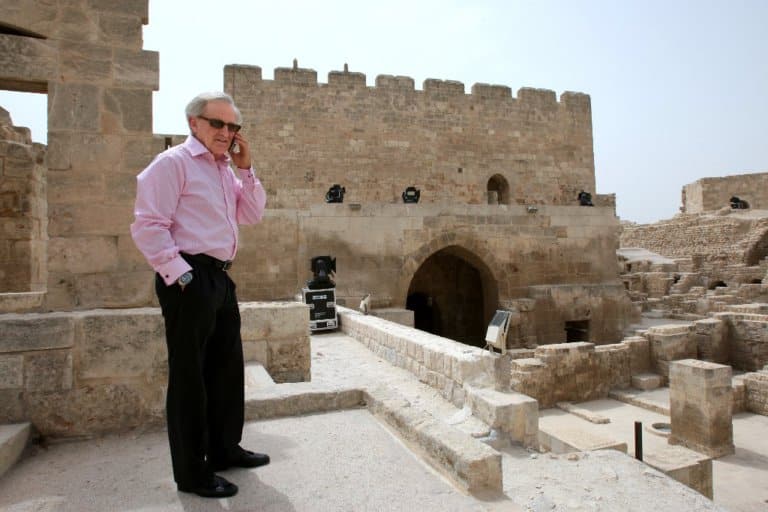
What was it like living in the oldest cities in the world at that time?
For decades, historians, scientists, and archaeologists have often wondered where these people live, what work they did, what they ate or how they survived wars, famine, and colonisation.
Today, many try and reimagine it, thanks to modern technology that provide an insight into the past and understand how the earliest civilisations evolved into what we are today.
That said, we should be thankful that they give us a glimpse into how people lived hundreds of thousands of years ago.
Some of the ways modern tech has been used include:
- Imaging techniques have to deconstruct ancient parchments
- Spectroscopy techniques like Raman and X-ray fluorescence (XRF) used in art and archaeology
- Artificial intelligence to decipher old and dead languages
- Collaborative online platforms like the Dead Sea Scrolls Digital Library
Technology before our time was used in the oldest cities in the world
Did you know that long before technology was what it is today, ancient civilisations across the globe were already using some form of tech to help better their lives?
Archaeological excavations have revealed that these inventions might have gotten lost throughout time but have been re-created or innovated.
Some of the more exciting inventions include the Damascus steel swords.
It originated in the Middle East in the 9th century and was known for being stronger and sharper than the Western swords used in the Crusades.
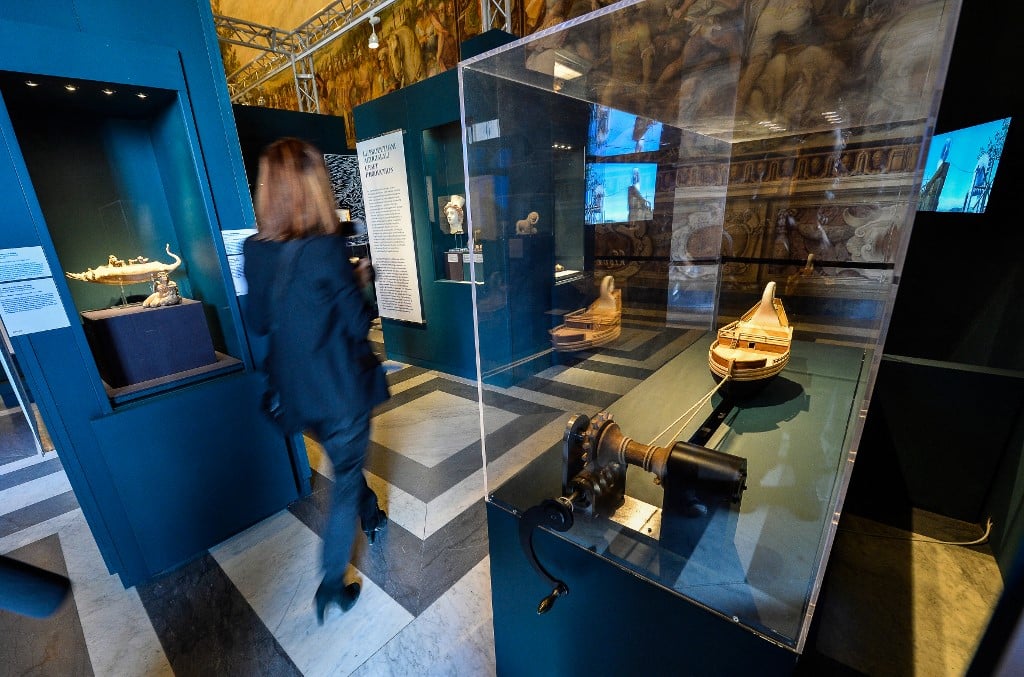
A visitor walks past a reproduction of Greek scientist Archimedes’ “endless screw” during the “Archimedes: art and science of the inventor” exhibition. Source: AFP
Another tech that comes to mind is the Archimedes screw, created by the famous Greek engineer Archimedes.
The screw turned out to be an effective and efficient way to move water or other materials from a lower to a higher elevation. Interestingly, it is still being used today.
Have you also wondered how the Romans built such grand and majestic structures?
The secret lies in the ingredients used to make Roman concretes. This was a game-changer for them because those structures still last today.
It included a mixture of volcanic ash, lime, and water. As this mixture hardened over time, it became a rock-solid material that could withstand all kinds of weathering and erosion.
There are so many more to list, but here’s the thing.
You can experience and learn all about these great inventions by becoming a student in any of the oldest cities in the world.
Explore excellent academia while marvelling at architectural structures while being in the middle of a vibrant and cultural scene.
Don’t forget to taste and fall in love with different cuisines while you are there too!
Explore the nightlife and make friends that will last a lifetime — these are only a tiny portion of what you will gain.
Here are five of the oldest cities in the world and why you should study there:
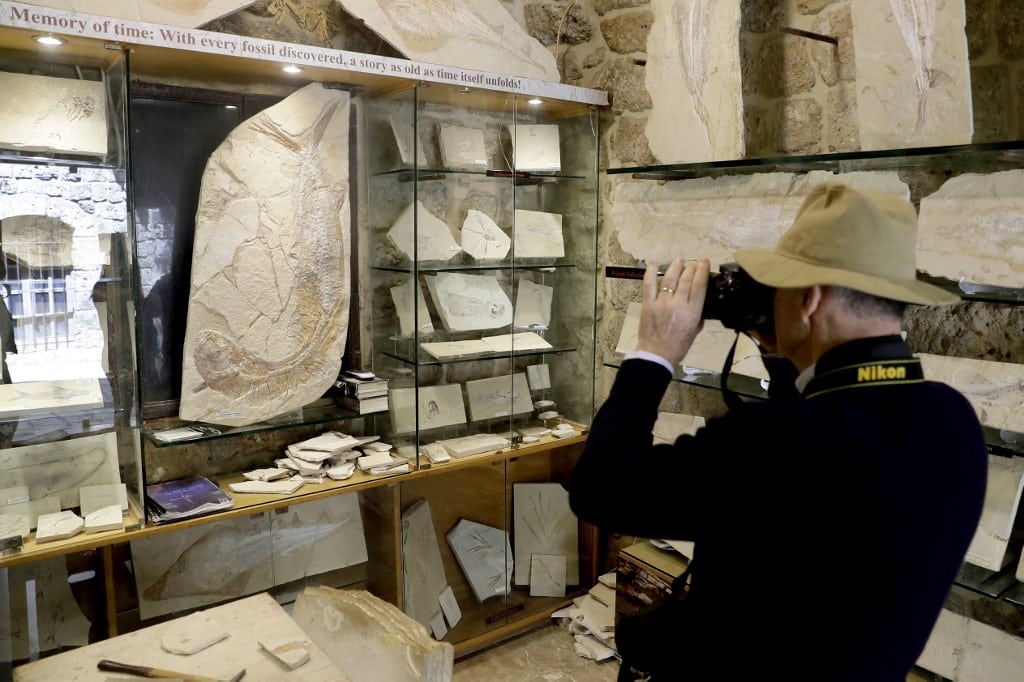
A tourist takes a picture of fossils found in the village of Hakel, displayed at the “Memory of time” exhibition in Byblos, one of the oldest cities in the world. Source: AFP
Culture and history: Unique perks of studying at 5 oldest cities in the world
1. Byblos, Lebanon
Byblos is another of the oldest cities in the world.
It has been inhabited since the Neolithic times and has stood strong from the time of its first settlement by fishermen dating back 8,000 years.
One thing that makes the Lebanese people proud is the Lebanese American University, which happens to have a campus on Byblos.
International students make up 18% of people here, proving it is a thriving and vibrant place for students to live in.
Another reason to study there is people in the city are bilingual. They speak English, French and Arabic.
If you are already a speaker of one of the above, it’ll be easy to communicate with others or use that to practise the language.
On top of that, you’re studying in a beautiful coastal setting.
Byblos is located on the Mediterranean coast, offering stunning views and a beautiful climate all year round.
With its service-orientated economy, banking and tourism are the two areas for growth. Consider venturing into these if you’re looking for a progressive career.
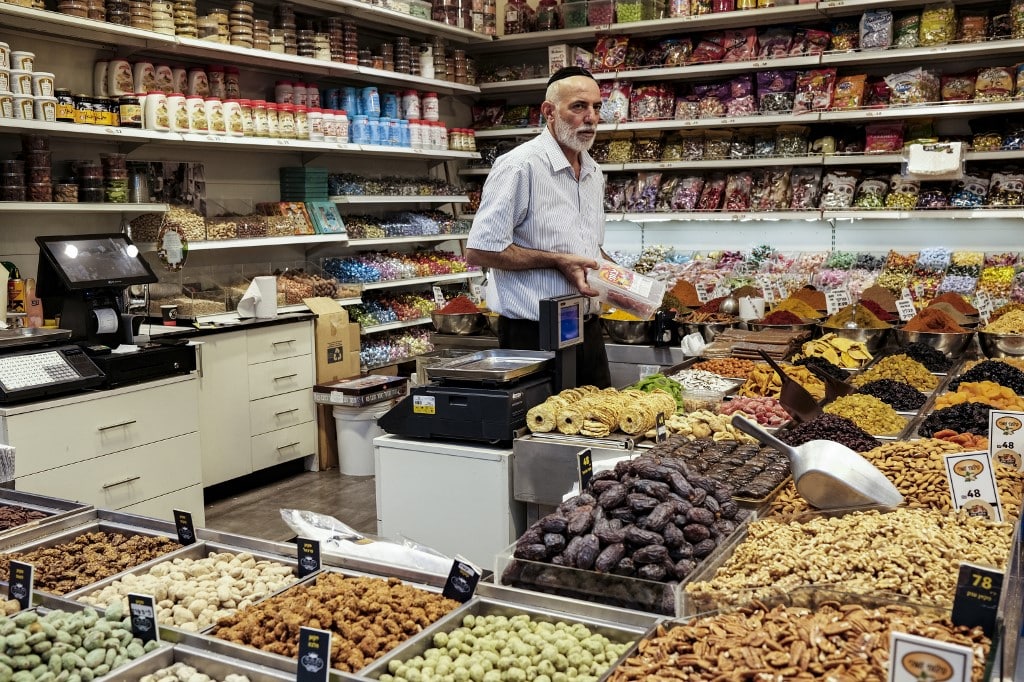
This is what awaits you in a typical market in Jerusalem. Source: AFP
2. Jerusalem, Israel
Called Zion in the Bible, scholars believe Jerusalem had its first settlers in the Early Bronze Age, 3,500 BC.
BC stands for Before Christ and refers to the time before year one.
Beginning with King David, who conquered the city and made it the capital of the kingdom in 1,000 BC, Jerusalem was ruled by many, including:
- Babylonians
- Romans
- Turks
- Egyptians
- British
- Persians
Israel won its independence in 1948 and has since become a developed nation — a promising hub for startups and tech companies and a global leader in medical innovations.
There are many perks for students who want to study in Jerusalem because of its achievements.
Its universities are ranked among the best in the world; students get a top-tier education no matter what field of study they choose.
Many brilliant minds have come out from universities in Jerusalem. Think of four Israeli presidents, iconic fashion designer Elie Tahari and Oscar-winning actress Natalie Portman.
There are exciting apprenticeship opportunities to experience, dream jobs in tech programmes, and career pathways to explore even if you are not a citizen.
We’ve heard the food is pretty incredible, too, with plenty of things to try.
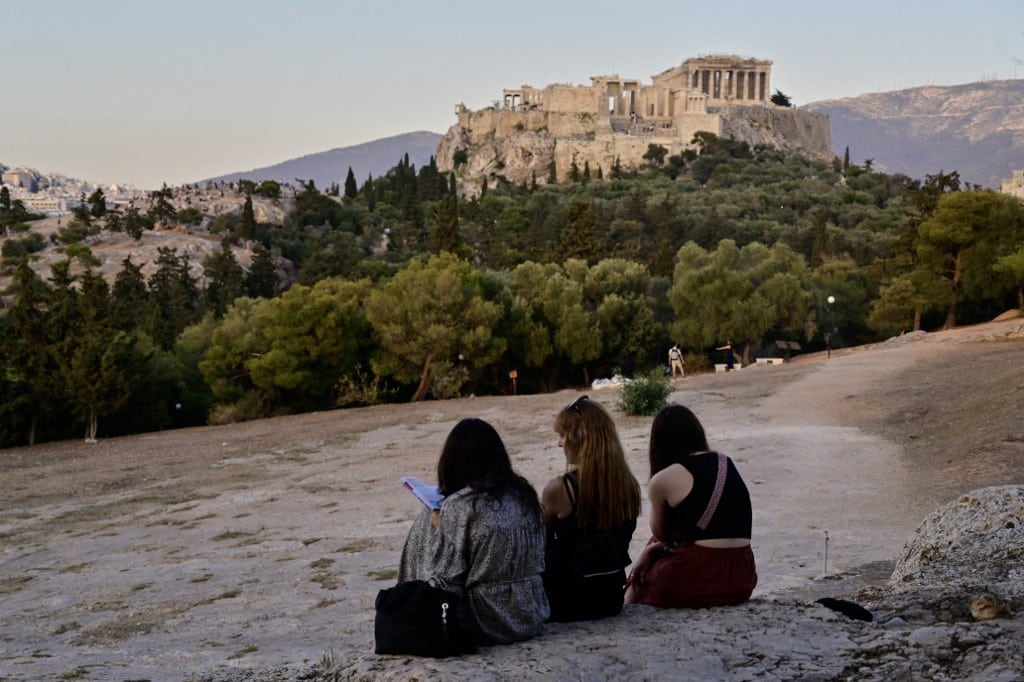
Women sit at the Filopappou hill with the Acropolis site in the background in Athens. Source: AFP
3. Athens, Greece
There is no mentioning the oldest cities in the world without bringing attention to the beautiful Athens in Greece.
The city wasn’t only populated 3,000 years ago in the Bronze Age but is still inhabited today.
In the fifth century BC, Athens became one of the highest forms of civilisation in the world.
Renowned philosophers, artists, writers, architects, and other famous personalities were born in this great city decades ago.
Among them is Plato, who founded the Platonic Academy in 387 BC.
Even Aristotle studied at the earliest institution for higher education in the Western world.
Home to some of the most prestigious universities in Greece, Athens is now ranked 104th in the Best Student Cities 2023.
The National Technical University of Athens, the National and Kapodistrian University of Athens, and the Athens University of Economics and Business are part of the QS World University Rankings 2023.
For students interested in ancient times, they’ll find this city a haven to explore with its historical sites. Modern-day wonders are also open for all to visit.
Need another good reason? Greek food is exquisite and cheap, plus Athens is right in the middle of Europe, so you are already in such a central spot for travel.

Lisbon is among the oldest cities in the world. It’s beautiful towers and palaces are a sight to behold. Source: AFP
4. Lisbon, Portugal
Lisbon is one of the oldest cities in Western Europe.
Said to be founded around 1,200 BC by the Greek traveller and hero Ulysses, Lisbon means an “enchanted port” and is strategically located on the right bank of the Tagus River.
Lisbon is home to many reputable universities offering a wide range of high-quality programmes.
Students, both local and international, have access to internships through various companies like Piktalent. This helps students get their foot in the door for future careers.
That’s not all. Living in Lisbon is pretty affordable; a single room with four other housemates will cost you about US$547 every month.
The public transportation system is also very timely even if you live away from the city, and students can buy passes called Viva Viagem Cards to use on the metro, ferry, buses and trains.
Another reason to love Lisbon is its cultural and historical richness. Explore places like Belém Tower, the Jerónimos Monastery, and the Castle of São Jorge.
If you are a foodie, you will love it here.
The city is known for its cuisine, which features grilled meats, fresh seafood, and decadent pastries like pastel de nata (custard tart) and Arroz doce (rice pudding).
Lisbon also enjoys a mild Mediterranean climate with mild winters and warm summers. The city is blessed with abundant sunshine and proximity to beautiful beaches like Cascais and Estoril.
The pleasant climate and natural surroundings provide opportunities for outdoor activities, sports, and leisure, contributing to a well-rounded lifestyle for students.
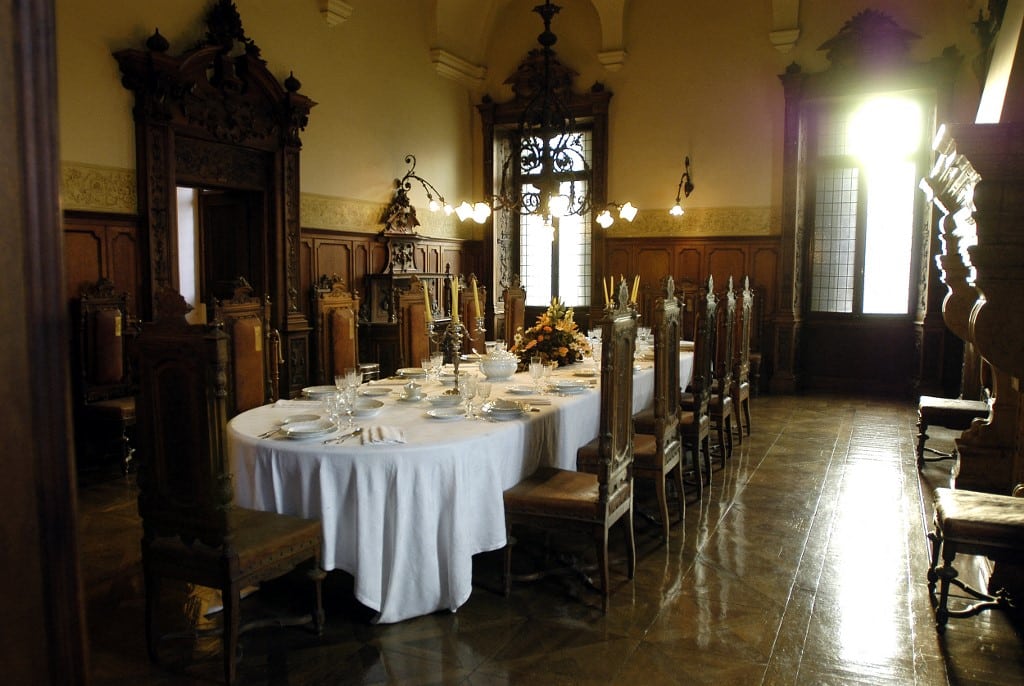
One of the most important architects of the history, Palladio’s villas influenced and revolutionised western architecture in the 17th and 18th centuries as seen in one of the oldest cities in the worlds. Source: AFP
5. Padua, Italy
Patavium, now known as Padua in Italy, is famous for many things other than being one of the oldest cities in the world.
According to tradition, it was founded in 1183 BC by the Trojan prince, Antenor.
The city was named a World Heritage Site in 1997 and was noted by UNESCO for contributing to the development of many areas, including ecology, botany, chemistry, medicine, and others.
Today, the city boasts of having one of the oldest universities in the world — the University of Padua.
Consisting of 32 departments and eight schools, it is a highly prestigious university that students aspire to get into.
Despite Padua not being as big or bustling as Venice or Verona, students will find this city a melting pot of cultures and adventures for them to experience and want to live in.
In terms of cost, Padua is affordable. For your own spacious room with two other housemates, you may be forking out US$678 each month, including your bills.
Students are entitled to discounts and concessions, including monthly public transport passes.
On top of that, there are so many things to do and see that you will never be bored while studying in Padua.








